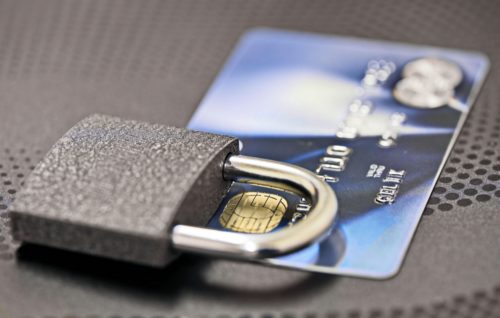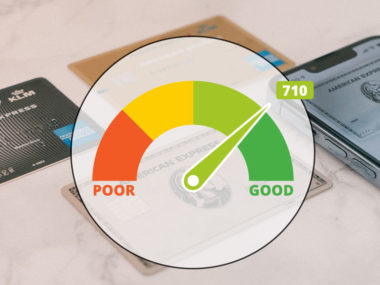You’re looking to make a large investment, like a car or home, but your credit score isn’t as high as it could be. Maybe you’re new to the credit world and you haven’t established a credit history for yourself. Or, perhaps you’ve made some weighty credit mistakes in the past and you’re scared that you won’t qualify for any new loans in the future. Don’t worry! There are simple ways that you can begin to change your credit score for the better. Secured cards are a smart way to begin to build or rebuild credit before you make a big purchase.
What is a Secured Credit Card?
Secured credit cards work in the same way that standard credit cards do. Your bank offers you a credit limit based on your credit score and credit history and you’re able to spend as much as you like until you reach that limit. However, in the case of a secured credit card, you must first put down a deposit in order to ensure that the credit will be paid off. Usually the bank requires a deposit equal to the amount of credit you’ll receive. For example, if you put down a deposit of $250, you’ll have $250 worth of credit to spend.
Secured credit cards are commonly offered to those who have no credit or are suffering from bad credit, which means they are significantly easier to qualify for than regular credit cards. Using a secured credit card is little to no risk to the bank and to you since your deposit can cover the cost of any credit you spend. Not to mention, when you close the account, any remaining deposit will be refunded to you. The only difference is, since your credit is checked, your credit card habits will be reported on your credit history. This means, if you make your payments on time and try your best to keep the balance fairly low, your credit score should slowly improve over time.
How Does it Help Build My Credit?
There are many things that can affect your credit, but two aspects in particular weigh quite heavily on the calculation of your credit score: making your payments on time and keeping your credit utilization low. Secured credit cards can help you with both of these things. Most secured credit cards have a fairly low limit, between $250 and $500. This keeps your credit within a manageable, payable range, which hopefully means you won’t ever have to worry about late payments. In addition, as you make those payments, your credit utilization will be lowered. This means, if you have $500 in credit available to you and you are only using $100, your credit utilization ratio is quite low. These events will be added in as credit history factors to be considered when calculating your credit score. Both on-time payments and low credit utilization will continue to have a positive impact on your credit score as long as you are able to keep up with them.
If you’re working with no credit, this is an easy way to add some positive events to your credit history. We all start out with no credit history, then as things are added to your history your credit score is calculated based on what information you have. When you or a bank requests a credit score, the three credit bureaus will use their formula and your current history to calculate a score. When your history is limited, your score might not immediately be where you want it to be. Our scores don’t start out at zero and work up or the highest rating and work down. Your score usually ends up somewhere around 250 to 300 when you first start, then you can work up from there based on your credit habits, which may take some time and consistency of positive habits.
On the other hand, if you have bad credit, you’re probably working with a credit score of 300 to 649. A score of 300 to 549 would be considered Very Poor and 550 to 649 is considered Poor. This could be due to an array of different issues, but if you’re thinking about rebuilding your credit with a secured credit card, it’s likely due to some credit mistakes. Anyone can fix their credit and starting with a secured credit card is a good launching point. Not only will your perpetual good habits be reflected onto your history, but this will help you understand credit a little bit better and get into the routine of how credit should be treated going forward.
When Should I Expect Results on My Credit Report?
You must remember that your entire credit history is considered when calculating your credit score. Credit utilization ratio and on-time payments are only two factors out of many that compile your final credit score. Simply having a few positive entries on your credit history may not be enough to bring your score to where you want it to be. Especially if you happen to have many negative entries on your credit history, it’s going to take some time to remedy those and add new, positive entries to your history.
Generally speaking, if you started making only positive credit choices today, you may be able to see results in three to six months. However, many situations aren’t that simple. Simply owning and using a secured credit card may not be enough to counteract previous damage to your credit. In order to truly see results, you may need to work on your credit for a year or more to see the kind of results that you want.
However, someone with no credit might be able to see results a bit faster, only because they have no negative results on their history at this time. As long as they keep it that way, they might see results in a few months.
Though, in order to get your score where you really want it, I suggest working on your score for more than three to six months. Good habits should stay with you for a lifetime. Technically speaking, you should always be “working” on your credit score.
Building a brand new credit history or recovering from a bad one is not easy. It takes dedication and patience to form a solid credit score. Just know that every choice you make in regards to your credit is one that should be handled with care. Your credit score will stay with you for the rest of your life, why not try and make it a good one? I know that is always easier said than done, but every person has the tools necessary to turn their score around. Opening up a secured credit card is a smart investment that will benefit your credit as long as you choose to use it responsibly.
For more tips and guides, visit our credit card learning center. For more information on how you can improve your credit score, visit the credit score resource center.
Image Source: https://depositphotos.com/





